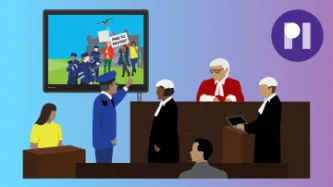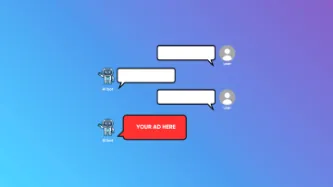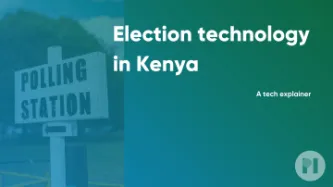Search
Content type: Long Read
Period tracking apps and the rollback of reproductive rightsThe aftermath of the overturning of Roe v. Wade in the United States (US) sparked widespread debate and concern that data from period tracking apps could be use to criminalise those seeking abortion care.While the surveillance and criminalisation of reproductive choices are neither new nor unique to the US, the scale and intensity of today’s crisis continue to grow. To put it into perspective, 22 million women and girls of reproductive…
Content type: Long Read
The security of our devices, applications and infrastructure is paramount to the safe functioning of our digital lives. Good security enables trust in our systems, it is fundamental to protecting the critical information we store and exchange through networks and devices. Similar to how we physically secure our homes, offices and schools, securing devices and software allows us to operate in safe and trusted environments where our security is guaranteed and protected.Security for information…
Content type: News & Analysis
Our partner Transparencia Electoral has created an extensive and interactive index on data protection during elections in Latin America.The index evaluates laws and regulations around data protection during the election cycle in 16 countries in the region: Argentina, Bolivia, Brazil, Chile, Colombia, Costa Rica, Ecuador, El Salvador, Guatemala, Honduras, Mexico, Panama, Paraguay, Peru, the Dominican Republic and Uruguay.Organising elections is a huge government data-gathering exercise. The…
Content type: Press release
FOR IMMEDIATE RELEASELONDON - 7 April 2025The Investigatory Powers Tribunal (IPT) has confirmed it will hear Privacy International, Liberty and two individuals’ challenge to the legality of the Home Secretary’s decision to use her powers to secretly force Apple to allegedly give the UK Government access to users’ secured data stored on iCloud. The challenge will also cover the legality of the Government issuing these types of notices at all. Privacy International and Liberty,…
Content type: News & Analysis
We’ve been asked a lot lately about whether it is safe to travel, particularly to the US. And it’s not surprising why: the US Government is increasing their cruelty at borders.Border management today is fueled by our data, but government officials want more. They want as much data as they can get to catch you out. They’ve reportedly detained or deported people based on their free speech activities, denying entry on tenuous grounds like having the wrong photos on phones (including in in the ‘…
Content type: Long Read
It’s important to us at PI that we continue to create real change in the world. We want our work to matter, and we challenge ourselves continuously to verify that it does.In 2024 we made substantial progress towards concrete systemic change. We challenged governments and corporations that exploit data and technology, pushed for new national and international policy standards, drove standard-setting action by courts and regulators. We educated and campaigned with others.As a result, we produced…
Content type: News & Analysis
On 11 March 2025, The Atlantic journalist, Jeffrey Goldberg was added to a Signal chat where senior US Government officials were discussing the United States’ military strikes in Yemen.This happened to Goldberg as an accident. Yet, security services around the world have pushed for this to be part of their clandestine surveillance operations: the so-called “Ghost Protocol”.Governments have been trying to gain access to private online conversations since private online conversations have existed…
Content type: News & Analysis
As the New York Times reports the health programmes are being cut by USAID cuts, the US Government declares them as “inconsistent with the national interest or agency policy priorities.” Sadly at PI we know the kind of foreign aid that governments believe are in the national interest: surveillance funding.We’re alarmed by aid budgets being cut by governments world-wide. People will be hurt, and people will die.And while most of the news has been dominated by the US’s cuts, the UK and France…
Content type: Explainer
Imagine this: a power that secretly orders someone anywhere in the world to abide and the receiver can’t tell anyone, can’t even publicly say if they disagree, and can’t really question the power in open court because the secret order is, well, secret. Oh and that power affects billions of people’s security and their data. And despite being affected, we too can’t question the secret order.In this piece we will outline what’s ridiculous, the absurd, and the downright disturbing about what’s…
Content type: News & Analysis
Edit: 13 March 2025 - You can find more about what happened next on our case pageOn February 21st, Apple disabled their ‘advanced data protection’ service for UK customers. That means no-one in Great Britain can now enable a powerful security safeguard that people who use Apple devices everywhere else on the planet can: user controlled end-to-end encryption of stored data.This is likely in response to a disturbing secret government power. Well, that’s what we think happened. We can’t know for…
Content type: News & Analysis
Together 12 organisations, including trade unions and NGOs across the EU and the UK, are asking Deliveroo, Uber, and Just Eat Takeaway to take serious steps to significantly improve the transparency and explainability around the algorithms they use to manage their workforce.These platforms rely heavily on the use of algorithms to manage many aspect of their workers employment, from account creation, to account suspension to how much workers get paid. Yet, it’s almost impossible for workers to…
Content type: Long Read
Intrusive surveillance technology is increasingly used during protests around the world, and we’ve been tracking its use around the world for years.This technology is often being deployed in secret, without a clear legal basis and without the safeguards and oversight applied to other surveillance technologies under international human rights law.We’ve increasingly observed the use of unlawfully generated and collected data from these technologies being used in court against people exercising…
Content type: News & Analysis
The UK government has published a £20 million procurement for tech companies to provide live facial recognition technology (FRT) to police forces across the UK.Through BlueLight Commercial, a non-profit commercial consortium representing police and other emergency services, the government has issued a tender notice to establish a national multi-supplier framework for the provision of live FRT. The Scope of the framework is for “real-time deployment of facial recognition technology, which…
Content type: Long Read
IntroductionIn early October this year, Google announced its AI Overviews would now have ads. AI companies have been exploring ways to monetise their AI tools to compensate for their eye watering costs, and advertising seems to be a part of many of these plans. Microsoft have even rolled out an entire Advertising API for its AI chat tools.As AI becomes a focal point of consumer tech, the next host of the AdTech expansion regime could well be the most popular of these AI tools: AI chatbots.…
Content type: Long Read
Increasingly, EdTech systems are less about teaching than about monitoring, security and ‘safety’ – although those aims are often mixed with wider educational claims.For instance, one company offering “high quality surveillance systems and CCTV for schools including sophisticated infra-red cameras which record in the darkest areas” claimed that these both deter “bad or antisocial behaviour from pupils, parents and visitors” and improve the concentration, productivity and attainment of the…
Content type: News & Analysis
Also available in English.A Relatora Especial da ONU sobre o Direito à Educação publicou seu relatório sobre liberdade acadêmica - que, entre outras coisas, recomenda que os Estados banam as tecnologias de reconhecimento facial das instituições educacionais.O sistema educacional do Brasil, que se baseia no valor fundamental “o melhor interesse da criança” é um dos piores infratores do mundo. Até o momento, 1.667 escolas só no estado do Paraná adotaram uma tecnologia que, segundo o principal…
Content type: News & Analysis
Também disponível em portuguêsThe UN Special Rapporteur on the right to education published her report on academic freedom, which recommends that states ban facial recognition technologies from educational institutions.Brazil’s educational system - which is built on the fundamental value: the best interest of the child, is one of the world’s worst offenders. So far 1,667 schools in the state of Paraná alone have adopted a technology that the UN’s leading expert believes threatens student’s…
Content type: News & Analysis
Artificial intelligence decision making systems have in recent years become a fixture of immigration enforcement and border control. This is despite the clear and proven harmful impacts they often have on individuals going through the immigration system. More widely, the harms of automated decision making have been increasingly there for all to see: from systems that encode bias and discrimination, as happened in the case of an algorithm used to detect benefit fraud in the Netherlands, to…
Content type: News & Analysis
We’ve published a new tech explainer on election technologies in Kenya. The explainer takes a deep dive into the technologies employed to manage and administer the election process in Kenya, such as biometric voter registration (BVR), voter identification, results transmission, and candidate management systems.Electoral processes - along with elections themselves - are one of the largest government data-gathering exercises undertaken, making them susceptible to data exploitation and privacy…
Content type: Long Read
INTRODUCTION
In recent years, major tech platforms have been rapidly evolving their business models. Despite their dominance in various markets, tech giants like Google and Meta are venturing into new territories to expand their user base. One of the most striking ventures has been their foray into the "connectivity market" through substantial, and occasionally unsuccessful, investments in network infrastructure.
Many tech companies are investing resources into network infrastructure, either…
Content type: Long Read
Social media is now undeniably a significant part of many of our lives, in the UK and around the world. We use it to connect with others and share information in public and private ways. Governments and companies have, of course, taken note and built fortunes or extended their power by exploiting the digital information we generate. But should the power to use the information we share online be unlimited, especially for governments who increasingly use that information to make material…
Content type: News & Analysis
Is the AI hype fading? Consumer products with AI assistant are disappointing across the board, Tech CEOs are struggling to give examples of use cases to justify spending billions into Graphics Processing Units (GPUs) and models training. Meanwhile, data protection concerns are still a far cry from having been addressed.
Yet, the believers remain. OpenAI's presentation of ChatGPT was reminiscent of the movie Her (with Scarlett Johannsen's voice even being replicated a la the movie), Google…
Content type: Long Read
Sports are a huge part of daily life for billions around the world, a fundamental aspect of the rich tapestry of the human experience.Attending a major sporting event can be a formative experience in someone’s life, as a place to share in a communal culture.Increasingly we have seen surveillance, and especially mass surveillance measures, being introduced at sports events impeding the enjoyment particularly of the right to privacy and right to participate in sporting life.When we saw that the…
Content type: News & Analysis
On 15 May 2024, a London Administrative Court handed down its judgment in the case of ADL & Ors v Secretary of State for the Home Department, just two months after another court judgment and a ruling of the UK's data protection authority (ICO). The four Claimants in this latest case (including asylum seekers and survivors of trafficking) were challenging the UK Home Office's policy of placing people released from immigration detention under 24/7 GPS surveillance - either by shackling them…
Content type: Long Read
IntroductionFor years PI has been exposing and advocating against the use of facial recognition technology (FRT) and the grave threats it poses to our rights. This highly invasive technology is paving the way to a dystopian, biometric surveillance state, where everyone is identified and tracked everywhere they go, in real time, as they move through public spaces during their everyday lives. Furthermore, this is taking place within a democratic vacuum, without any specific legislation pertaining…
Content type: Long Read
In 2023, Privacy International continued to produce real change in the world. We kept challenging governments and corporations that use data and technology to exploit us; pushed for new legislative standards; educated and campaigned with others.
And, we produced HUGE impact that directly affects each of us.
Here's a selection of our biggest achievements from last year.
French Data Protection regulator (CNIL) fined Doctissimo and Criteo
Following PI’s complaint, in May 2023, CNIL fined French…
Content type: News & Analysis
In a significant and forceful decision, on 1 March 2024 the UK's Data Protection Authority found that the UK Government's GPS tagging of migrants arriving to the UK by small boats and other "irregular" routes was unlawful.
The decision comes as a result of Privacy International's complaint filed in August 2022 against the GPS tagging policy, which alleged widespread and significant breaches of privacy and data protection law. Our complaint relied extensively on anonymous testimonies of…
Content type: Press release
9 November 2023 - Privacy International (PI) has just published new research into UK Members of Parliament’s (startling lack of) knowledge on the use of Facial Recognition Technology (FRT) in public spaces, even within their own constituencies. Read the research published here in full: "MPs Asleep at the Wheel as Facial Recognition Technology Spells The End of Privacy in Public".PI has recently conducted a survey of 114 UK MPs through YouGov. Published this morning, the results are seriously…
Content type: Long Read
TAKE ACTION TO STOP THE END OF PRIVACY IN PUBLIC1. IntroductionThe use of facial recognition technology (FRT) by law enforcement and private companies in public spaces throughout the UK is on the rise. In August 2023, the government announced that it is looking to expand its use of FRT, which it considers “an increasingly important capability for law enforcement and the Home Office”. The indiscriminate use of this dystopian biometric technology to identify individuals in public spaces is a form…



























